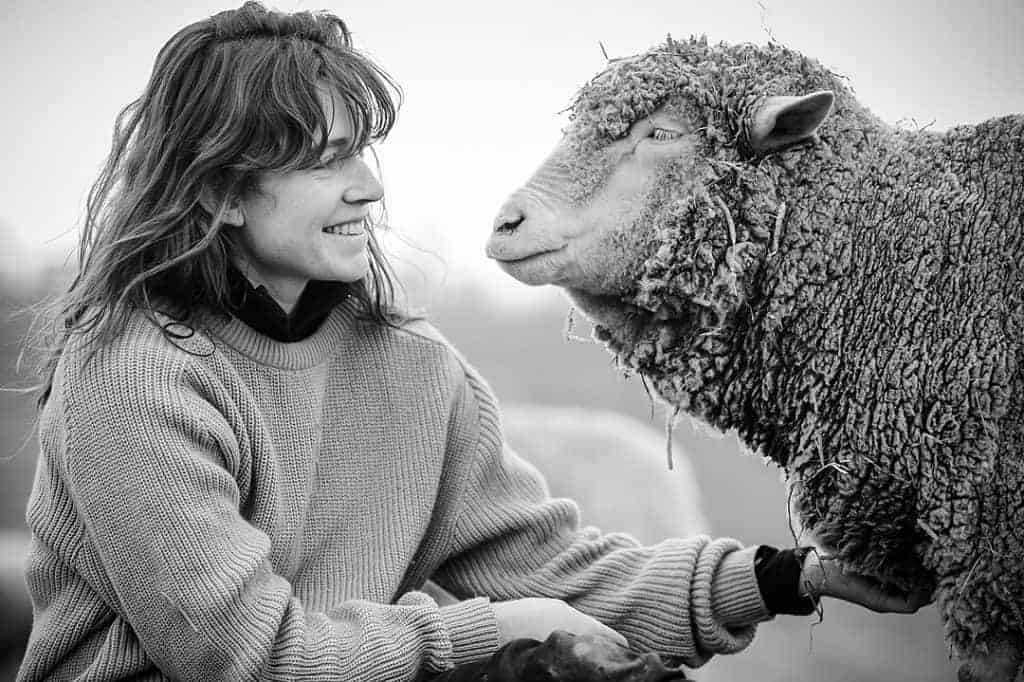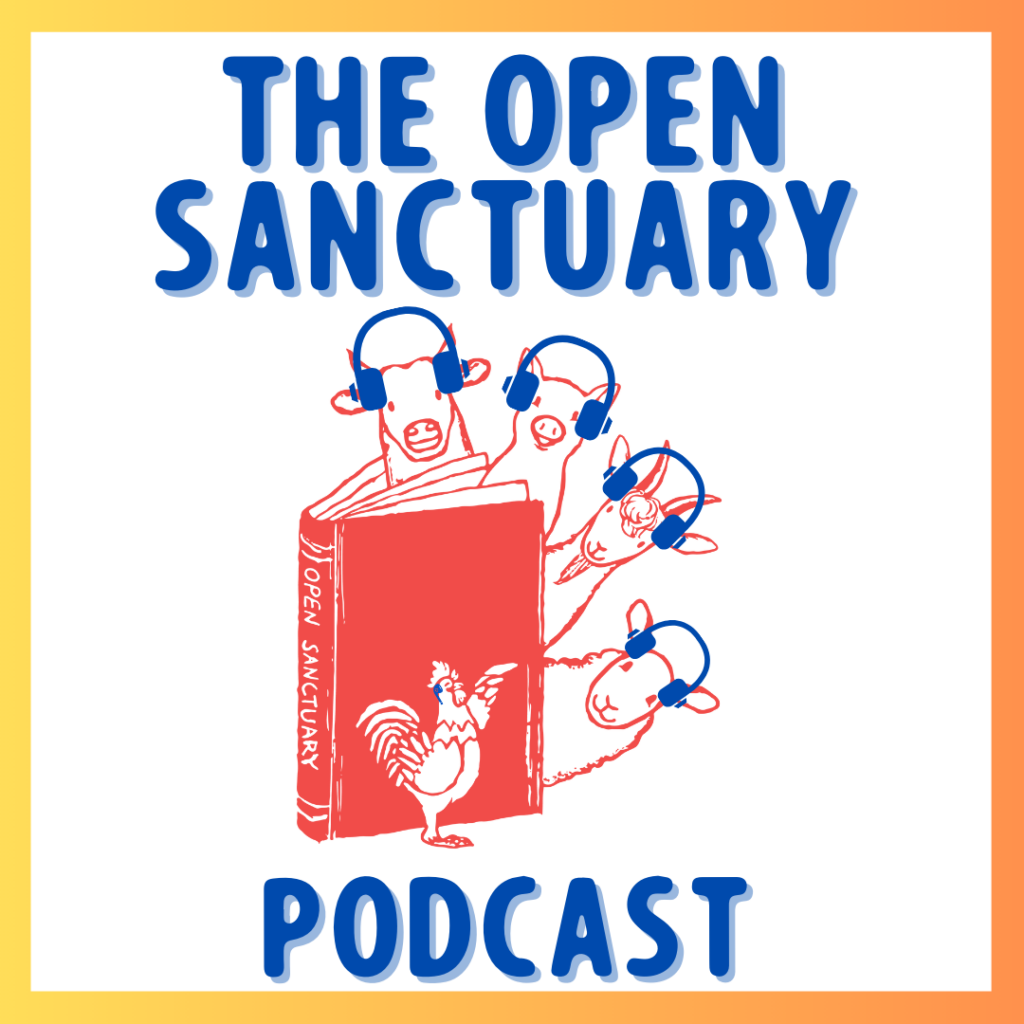

We Have A Podcast Episode On This Subject!
Want to learn about this topic in a different format? Check out our episode of The Open Sanctuary Podcast all about the importance of cultivating observation skills as a sanctuary caregiver here!
If you’ve spent much time reading our resources, you’ve probably noticed that we use the word “observation” a lot. This is because observation plays an important role in almost all aspects of caregiving. So what do we mean by “observation”? In the context of caregiving, observation is the process of using your senses to gather information about your residents and their lives. Depending on the information we are taking in and our level of experience, our observations may result in learning something new, reinforcing something we have already learned, or recognizing something that deserves further attention.
Observation As A Learning Tool
In order to properly care for our residents, we need to understand who they are and what they need. There are various ways that caregivers work to learn more about their residents and what they need- they may take a course, participate in a webinar, order some new books, connect with experienced caregivers online, or check out sources like The Open Sanctuary Project. These are all great ways to build knowledge, but don’t forget that there is so much we can learn about our residents simply by spending time with them and paying attention to them!
Through observation, we can learn more about the species and breeds we care for, and we can learn more about who our residents are as individuals. In some cases, you might observe something that inspires you to do some research or reach out to other caregivers in order to understand what you have observed. Other times, the information gathered during observation may illustrate something you knew but have never personally observed. Either way, observation plays an important role in learning more about your residents.
Learning More About The Species And Breeds In Our Care
By observing our residents, we can learn a lot about who they are as representatives of their species and breed. As mentioned above, sometimes observing your residents will teach you something you never knew, and other times it will deepen your understanding of something you’ve already learned. Information gathered through observation can teach you more about a species or breed, including:
- Their general physical characteristics/ anatomy
- How they smell
- How they typically behave (such as how they play, relax, groom, fight, eat, sleep, etc.)
- What their body language and vocalizations mean
- The natural processes they go through (such as those related to digestion, hormones, the season, etc.)
- Subtle signs of concern
- How certain health challenges manifest
There is absolutely value in learning more about the species you care for through informational sources, and we encourage you to seek out these sources for a variety of reasons, including the fact that what you learn can help you contextualize your observations. However, some information is much easier to understand when you are able to see, feel, hear, or smell it for yourself. Through regular observation, we are able to establish a point of reference against which we can compare future observations, which will make us more likely to notice when the information we are taking in doesn’t line up with what we would expect. Also, by deepening our understanding of the species and breeds in our care, we can better evaluate our care practices and ensure we are providing our residents with the best life possible.
Learning More About The Unique Individuals In Our Care
Our residents are much more than just representatives of their species or breed. They are unique individuals with their own personalities, preferences, and histories. They have friends (and sometimes nemeses), routines, and quirks. By spending time observing and interacting with our residents, we learn more about who they are. This might include:
- The individual’s unique physical characteristics
- Their typical routine/ how they spend their time
- How they typically behave
- How they typically interact with the individuals they live with, and how they typically interact with you
- How they react to certain situations
- Their likes and dislikes (such as how they want to be approached or touched, their favorite/ least favorite treats, their favorite place to relax, or who they like to spend their time with)
- How their past or present health issues manifest
By understanding who our residents are as individuals, we are better able to determine what they need, and we are better able to assess their health and well-being. For example:
- The question “What do sheep need?” becomes “What does Walter the sheep need?”
- The question “Is what I’m seeing ‘normal’ for turkeysUnless explicitly mentioned, we are referring to domesticated turkey breeds, not wild turkeys, who may have unique needs not covered by this resource.?” becomes “Is what I’m seeing normal for Phoebe the turkeyUnless explicitly mentioned, we are referring to domesticated turkey breeds, not wild turkeys, who may have unique needs not covered by this resource.?”
By going beyond generalizations based on an individual’s species or breed, we will be better positioned to provide the individualized care our residents deserve.
The Role Of Observation In Assessing Resident Health And Well-Being
In addition to using observation as a way to learn more about our residents, we also use the information we gather through observation to help us assess our residents’ health and well-being. Here are just some of the many ways we put our observation skills to use:
- Checking on residents throughout the day to make sure everyone appears healthy and comfortable
- Picking up on subtle cues that someone is not feeling well
- Paying attention to a specific symptom in order to evaluate the efficacy of a treatment plan
- Evaluating your enrichment program and specific enrichment offerings
- Performing intake evaluations and routine health checks
- Conducting introductions
- Assessing group dynamics and determining if and when to intervene
- Safely interacting with residents
- Monitoring food and water levels
- Noticing care needs (such as someone with nails or hooves that need trimmed)
- Identifying an issue with resident housing or a way to make their living spaces more comfortable, enjoyable, or enriching
Make Observation A Priority
Because observation plays such an important role in so many different aspects of providing care, we should make observation a priority and identify ways to become better observers. To read more about how to develop and refine this important skill, check out our resource here.
A Note For Caregivers
It’s easy to become hyperfocused on all the tasks that need to be completed on any given day and to rush from place to place while thinking about everything that is still left to do. Remind yourself that thoughtful observation is an important aspect of providing care and be sure to take (at least) a few moments to really observe your residents. This isn’t to say that there’s no multitasking in caregiving or that observation only occurs when you’re focused on observing residents. A really observant, experienced caregiverSomeone who provides daily care, specifically for animal residents at an animal sanctuary, shelter, or rescue. is constantly paying attention to what is going on around them, but there’s something to be said about taking a few moments to really focus your attention on observing your residents and thinking about what your observations mean.
A Note For Sanctuary Management
If you are in a position that has influence over the daily caregiving schedule, make sure you build enough time and flexibility into the schedule for caregivers to observe residents throughout the day. If caregivers are rushing from one area to the next, or if the time they spend with residents is full to the brim with tasks that must be completed, they may not actually have time to thoughtfully observe what’s going on around them. When creating the schedule or determining how many staff or volunteers are needed to keep things running smoothly, avoid creating shifts that require someone to work at a feverish pace in order to complete everything in the allotted time. This is harmful both to your staff and to your residents. Let staff know you expect them to take time throughout the day to thoughtfully observe residents, and remind them that this might entail slowing down a bit. Make sure they know how important this aspect of the job is, and show them you know it’s important by actually giving them the time to do it.
Our residents are constantly teaching us more about who they are, so the next time you’re spending time with your residents, remind yourself to slow down and take it all in!






